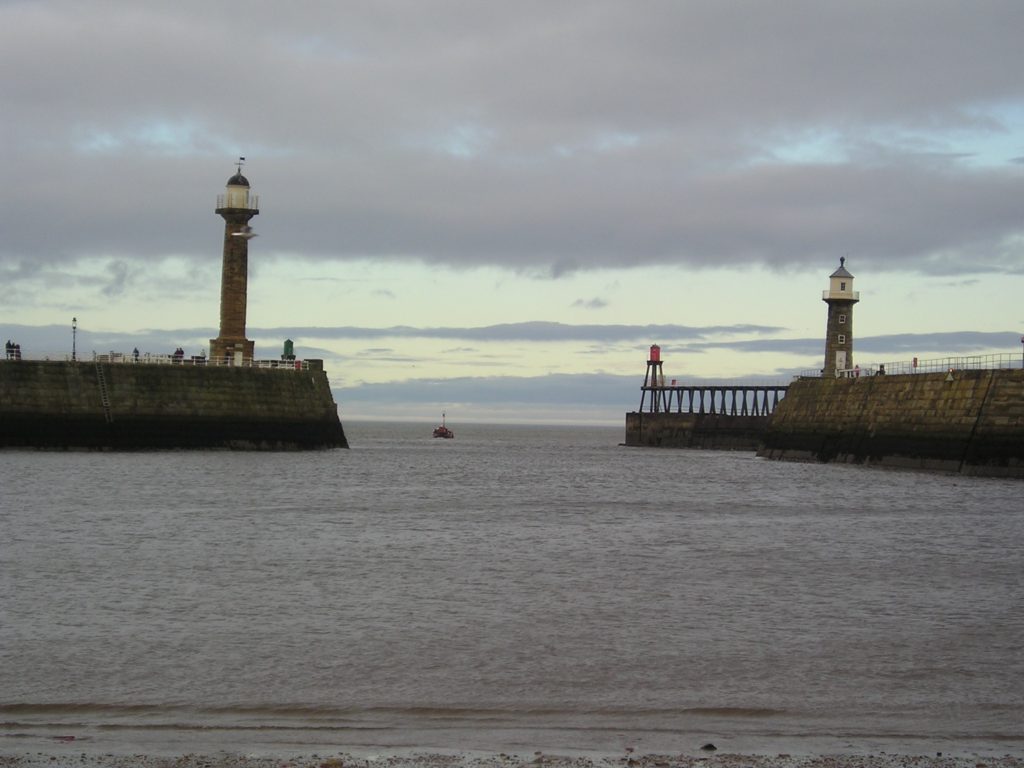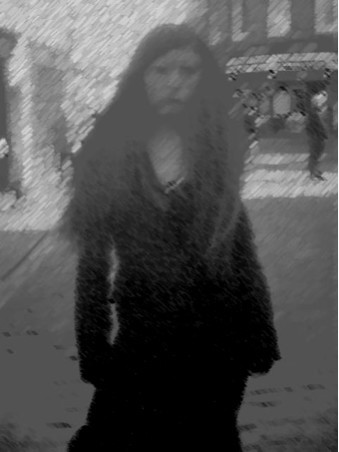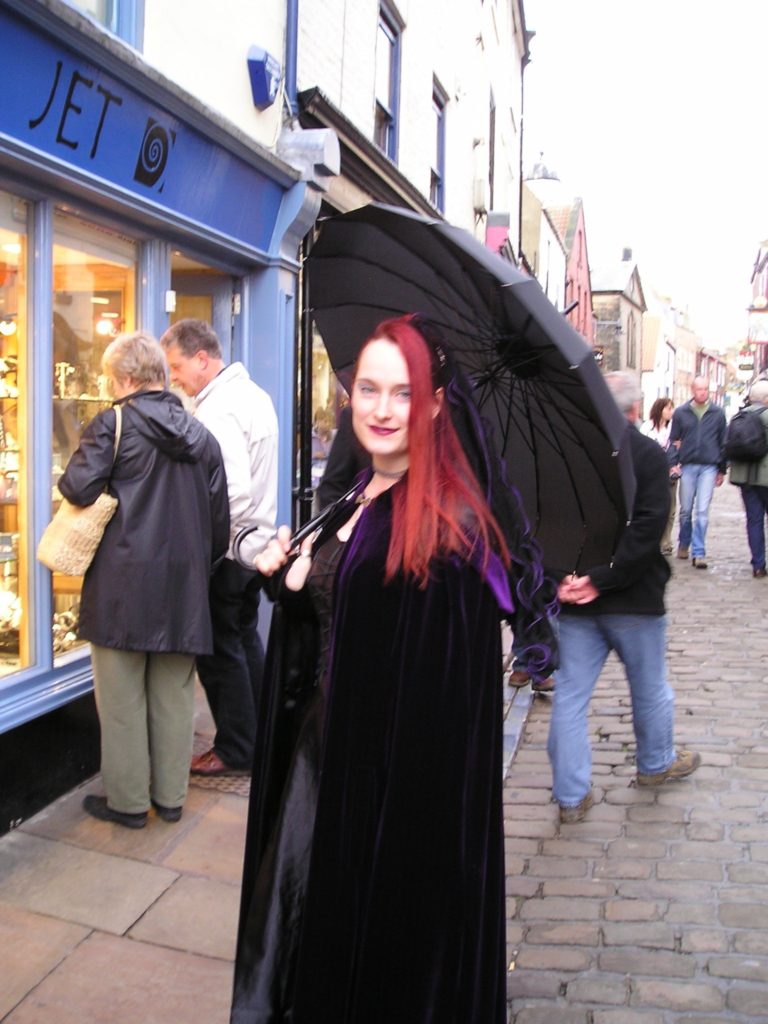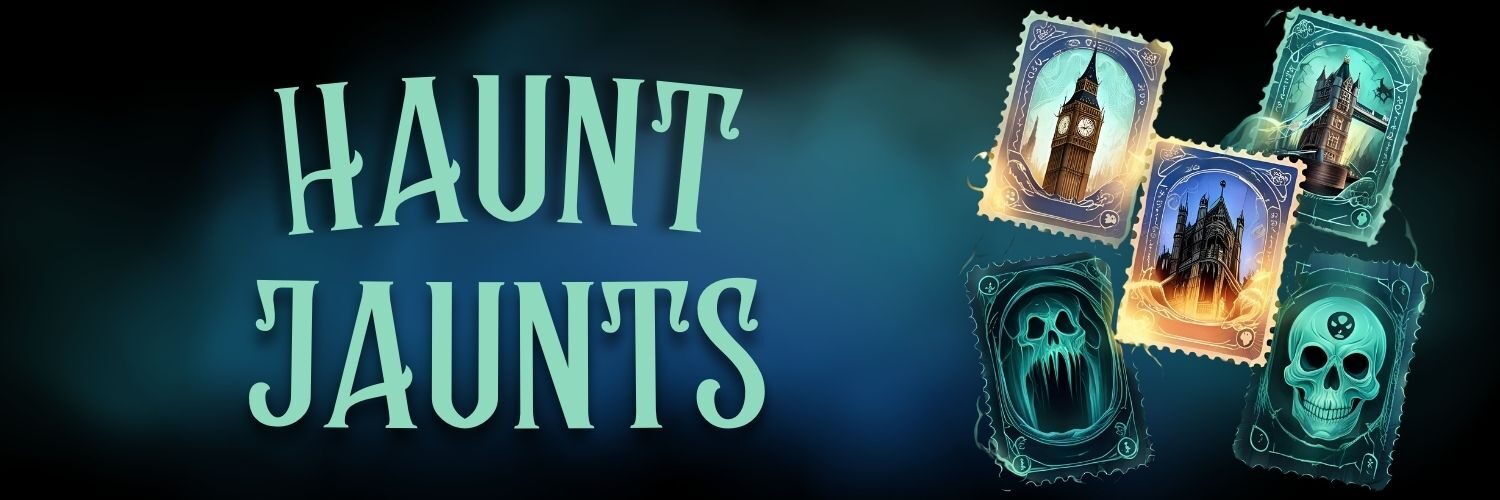I’m pleased to welcome guest blogger Psychic Investigator Paul Fitz-George to Haunt Jaunts. I met Paul on one of the LinkedIn groups we both belong to. He shared some information about his book, The Whitby Ghost Book, that caught my eye. Specifically, how many famous writers had found inspiration in Whitby, such Bram Stoker, Wilkie Collins, Lewis Carroll, and Charles Dickens.
I thought that would make a great guest post and asked him if he’d like to submit something. He said he would, and he presented me with “Whitby’s Fascination for the Literati, or How Dracula Met the Jabberwocky.”
I’ve broken it up into a series of six posts, the first of which gives a background of Whitby and its haunted history. Enjoy!

Whitby, as you approach it from the high cliff-top on which lies that ancient 13th century Benedictine Abbey and stately Abbey House, appears to the observer to be a typical eighteenth century seaport. In appearance, it’s too big for a village, but just a bit too small for what could be called a town.
At one point in time though, it was one of the biggest ship building ports in England and it was here that Captain Cook’s famous ship Endeavour was built. It was also once a major east coast whaling port, until both these industries (fortunately for our beloved whales) died out.
Whitby’s narrow streets have paid host to the Celts, Romans, Anglo Saxons, Viking raiders and finally the conquering Normans. Viking raiders from Denmark named the town ‘Whitby’ (literally ‘the white town’) and gave it a parliament, or Thingwala, just like the one in Iceland, at which point in time the town’s name was stabilised much to the relief of yea ancient mapmakers.
Gradually, the town began to prosper in both the ship building and whaling industries. The wealth from which gradually dried up in the nineteenth century, leaving fishing and tourism as the town’s main source of income…and ghosts and the supernatural of course!

With its troubled background then, it is not surprising that Whitby’s picturesque setting and its long and eventful history from conquest to commerce, acted as a lure to writers from far and near. These have included Bram Stoker, Wilkie Collins, Charles Dickens and Lewis Carroll, the latter having spent his childhood days in Richmond, a market town some few miles away in the beautiful Yorkshire Dales.
It is these four, this Victorian ‘cream of the crop’ writer-wise that I will discuss in this series, examining their interaction with the town, and what, if anything, influenced any of their works that involved ‘the supernatural’.
They certainly had plenty to influence their fertile imaginations in Whitby, with its strange tales of Bargheist hellhound dogs and ghost coaches roaming its narrow streets at night, as well as the terrifying wafts (doppelgangers) that could accost you unawares during your daytime shopping.
Its folklore, too, provided a literary mine for our writers, much of which probably stemmed from Saxon and Norse mythology. There was the New Moon worship performed by its young girls, anxious to see who their husbands would be and the macabre superstitions of the Seafolk, the outcome of their working day or even their possible sudden death, being determined by a chance encounter in the street with a pig, drowned dog or cat, or something as simple as the sight of a woman’s face.

The first and most famous (supernatural-wise) of this illustrious worship of writers that I will document is Bram Stoker.
This series will continue with Whitby’s influence on Bram Stoker. Stay tuned. If you dare…
Got an idea you’d like to submit? We’re always looking for quality infotaining posts about true crime, horror, and the paranormal –or some blend thereof. Visit our Writers Wanted page for submission details. We’d love to have you join our Skeleton Crew!
P.S.
Yes.
That’s the answer to that question we know you’re wondering about. We do pay. Not a lot. Don’t get excited. But we believe in paying writers for their time and energy. You’ll find complete details on the Writers Wanted page.

I’ve just finished your excellent series, sir! I was particularly fascinated with your mention of the Bargheist . In my study of ghosts of the American South I’ve encountered a few stories of hellhounds and one story in particular involving a “Barghest.” Evidently one of these frightening creatures made an appearance on The Hill on the campus of The University of Tennessee in Knoxville. Thank you for your series and if I have a chance to return to Britain I’ll certainly add Whitby to my list of places to visit.
Many thanks for your comments Lewis, much appreciated and I’m sure you’ll be fascinated by Whitby when you get a chance to go there. I recommend a visit to the museum in Pannet Park, where you can see some fascinating artefacts including the ‘hand of glory’, a dead man’s hand carried by burgulars that was meant to put the inhabitants of a house being burgled to sleep whilst the burgular carried out his nefarious work!
Cheers Lewis,
Paul